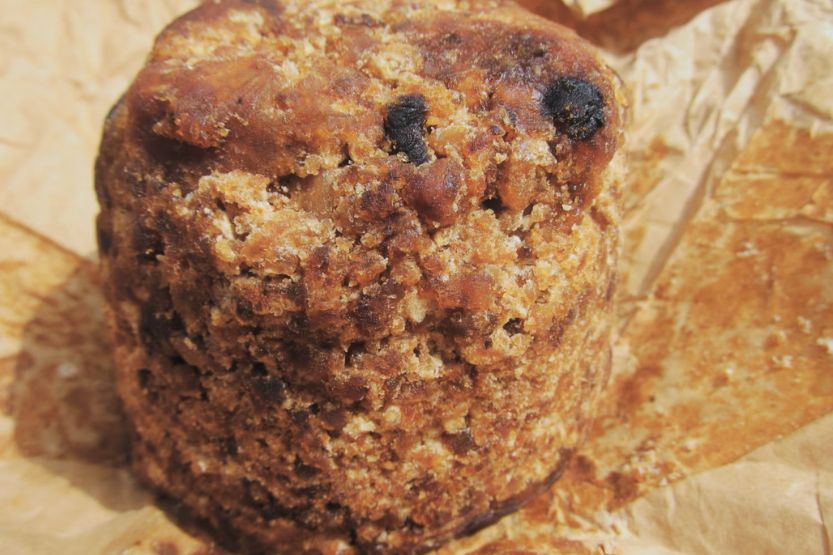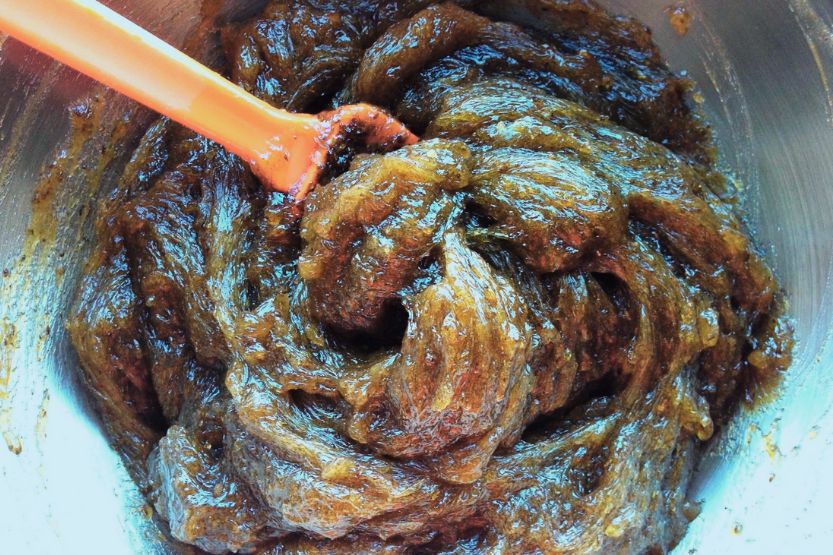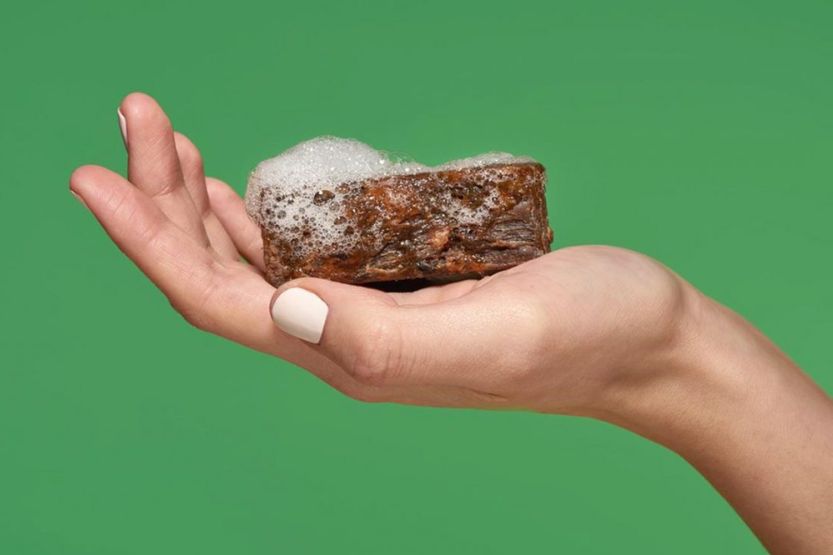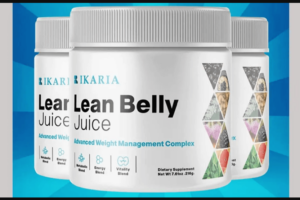Real African black soap is one of the most popular beauty products on the market right now, and it’s easy to see why: it’s made with only ingredients that help your skin feel smooth and look radiant while also being good for your body (and the environment).
But what exactly are those ingredients? And how do they work? This article will look closely at the real African black soap ingredients and what each one does for your skin.
The common ingredients in African black soap include:
- Cocoa pods
- Palm oil
- Palm kern oil
- Plantain skin and leaves
- Coconut oil
- Coconut butter
- Shea butter
Read on to discover more about these ingredients and how they work to keep your skin looking its best.
Ingredients in African Black Soap

African black soap is one good option if you’re like most people who want to take care of their skin but don’t know how and where to start.
It is made from natural ingredients and is suitable for all skin types. African black soap is also an excellent choice if you’re looking for an alternative to commercial soaps filled with chemicals.
Here’s a list of common ingredients in authentic African black soap and their benefits to your skin:
1. Cocoa Pods
African black soap contains a powerful antioxidant: cocoa pod. This ingredient is anti-inflammatory, soothing for skin cells, and protects the body from environmental free radicals that can cause premature aging.
African black soaps contain a small amount of caffeine, which some people may be sensitive to. Therefore, start with a small application on a skin patch first to see if you have any adverse reactions.
Some studies show that caffeine can pass through the skin, so if you’re sensitive to it (or just not sure), test a small amount on your arm first and see how you react.
Some people might find cocoa pod ash irritating. I did, at first, but I solved that problem by not leaving the soap on my skin for too long.
I’ve discovered that the best way to avoid irritation, especially if you have sensitive skin like me, is simply washing off the soap after only about 20 seconds with warm water.
2. Palm Oil
This oil comes from the fruit of a palm tree. Palm oil, which contains vitamin E, is beneficial for treating eczema, acne, and psoriasis.
This oil also helps to protect against environmental damage. Aside from being a soap ingredient, palm oil is also used in many cosmetic products like lotions and lipsticks.
3. Palm Kern Oil
Another ingredient in pure African black soap is palm kern oil, which comes from the seed of palm fruit. The fat within this type of oil contains lauric acid, an anti-fungal and antibacterial that can help prevent acne breakouts or eczema flare-ups.
4. Plantain Skin and Leaves
Another African black soap ingredient is plantain skin, a natural source of vitamin E and A. Plantains also contain iron. This mineral strengthens the body’s immune system as well as your hair follicles.
Vitamin E rejuvenates irritated or itchy skin by repairing damaged tissue, while vitamin A boosts hydration levels to make the texture of your skin much smoother.
Plantains are often mistaken for bananas when in fact, they are different. The former is longer and has thicker skin than a banana. It has brown spots that signify ripeness on its rough outer surface.
Of course, bananas are most commonly eaten raw. However, raw plantains are bitter and usually cooked before consumption. Plantains also taste similar to potatoes but sweeter.
5. Coconut Oil
This oil has many benefits, and it’s no surprise that this ingredient is so prevalent in African black soap.
Coconut oil is a fantastic moisturizer and has been shown to reduce wrinkles, stretch marks, and other signs of aging.
It contains lauric acid, which is antiviral and antibacterial — meaning it can help you fight off infections from cuts and scrapes.
6. Coconut Butter
Coconut butter is a substance made from the meat of coconuts, dried, and ground into a butter-like form. And like coconut oil, it’s rich in fatty acids and lauric acid, which are great for your skin.
When used in African black soap, coconut butter helps to hydrate dry skin and prevent wrinkles. You can apply coconut butter directly to your face or body and rubbed into the skin for a quick moisturizing boost.
7. Shea Butter
Shea butter is a pale yellow or white fat produced from the nuts of the African shea tree. It is known for its moisturizing, emollient, and protective properties, making it an ideal ingredient in products like African black soap.
Shea butter is centuries-old for its healing properties and ability to soften even the most challenging skin types. It’s known for being very effective in treating eczema, psoriasis, acne, scars, stretch marks, burns, rashes, and more.
Again, what chemicals are in black soap? African black soap is originally from West Africa. It contains locally harvested plants, but the ingredients may vary depending on the region. The soap’s ingredients may include water, roasted plantain skin (or cacao pods), and shea butter or palm kernel oil.
Fake African Black Soap
When you buy African black soap, it’s essential to ensure that it is genuine. Beware of products that claim to be from Ghana — they might be fake.
There are a lot of these on the market. Also, watch out for products that contain synthetic ingredients. Many companies add these to cut costs and increase profits.
Synthetic Ingredients Not Ideal for Eczema
While these synthetic options are usually still effective and safe, it’s essential to know that they do not have the same properties as authentic African black soap. This is especially true if you’re looking to treat a specific skin condition, such as eczema.
Other Names for African Black Soap
Other names of African black soap are Anago Soap and Alata Samina. It has been used for cleansing and healing skin in West Africa since ancient times. It helps prevent acne by gently exfoliating dead cells from the surface of your epidermis while hydrating it simultaneously.
Only Made in West Africa
This soap even gently exfoliates the scalp and hair while moisturizing both. As its popularity has spread worldwide, many have attempted to duplicate it. But real traditional African black soap is only made in West Africa, with some of the best quality coming from Ghana.
That’s why genuine African black soap is always more expensive than regular bath soap because it travels further to reach consumers, and there’s less product available.
How to Make Your Own African Black Soap at Home

To avoid fakes, buying real black soap from a reputable source is always best, or make your own. Learning to make African black soap is easy and only requires a few ingredients.
Traditionally, real African black soap is produced in West Africa using a base of natural oils and butter — an all-natural soap that doesn’t have any added fragrances.
That makes it excellent for a dry and sensitive skin type like mine. I’ve tried a few different recipes for black soap, and I like this one the best.
Materials
For this homemade African black soap recipe, you’ll need:
- Ground roasted plantain peels
- 2.4 oz (70 ml) coconut oil
- 8.8 oz (260 ml) African shea butter
- 2.4 oz (70 ml) palm oil
- 3 oz raw (88 ml) cocoa butter
For the lye solution, you’ll need two things:
- Solid sodium hydroxide
- 14 oz (414 ml) distilled water
Here are a few optional ingredients:
- Activated charcoal
- 2.4 oz (70 ml) tamanu oil
- Vanilla bean or essential oils (for fragrance)
When shea butter is unavailable, use extra coconut oil or extra cocoa butter as a substitute. I included activated charcoal to make it look more authentic and for aesthetic purposes.
You can also add tamanu oil (which isn’t authentic, I know) since it’s beneficial for many skin conditions. If you haven’t heard of tamanu oil, it is a beautiful tropical oil with a nutty smell.
You can find tamanu oil at health food stores. Polynesian women use it as face oil — I tried it and liked it! Also, tamanu oil is dark brown, adding more color to this homemade soap bar.
Real African Black Soap-Making Process
When making soap from scratch, you need to make a lye solution. To make this solution, dissolve solid sodium hydroxide in water:
- Pour sodium hydroxide beads into distilled water.
- Stir until fully dissolved.
- Let the solution cool down by leaving it at room temperature.
Here are the instructions to make the African black soap solution:
- Melt all oils and butter.
- Add ground and roasted plantain peels to the lye solution. Let it steep for a while, and then strain it.
- Add all oils and melted butter, including the tamanu oil, to the solution.
- Next, add the plantain solution and activated charcoal (optional).
- Combine the ingredients using a blender until you see a nice dark brown color.
- Strain any plantain peel pieces.
- Add some vanilla bean to give it another natural fragrance.
- Stir all together and pour the solution into the soap mold.
- Let it sit to go through the gel phase.
- Cut the soap into small blocks and then wrap them with a shrink wrap.
Frequently Asked Questions – What Are the Real African Black Soap Ingredients?

How Can You Tell if African Black Soap Is Real?
Like a typical soap bar, real African black soap is soft. It doesn’t have artificial fragrances; instead, it smells earthy or faintly chocolate-like due to its cocoa content. It’s not black, but rather brownish-black. Don’t buy soap that has been dyed with artificial colors.
What Makes African Black Soap Special?
African black soap is made from simple and natural ingredients and doesn’t just clean the skin. Its antibacterial properties help treat certain skin conditions, and its moisturizing ingredients might slow down some signs of aging.
Is There Fake Black Soap?
Fake Black Soap is a toxic version of African Black Soap. It’s usually mass-produced by large corporations around the globe and contains ingredients such as oxides, artificial colors, preservatives, and alcohol.
Does African Black Soap Bleach Your Skin?
It effectively brightens the skin tone and fights acne, discoloration, and hyperpigmentation. It removes dead cells on your skin’s surface and allows vitamins A and E to penetrate the pores for a brighter, lasting complexion.
Does African Black Soap Fade Scars?
African black soap contains vitamin A, E, and moisturizing oils that can help make skin look brighter by reducing dark spots and scarring.
Conclusion – Ingredients of Real African Black Soap
Now that you know what’s in African black soap look for the key ingredients mentioned in this article. With its ability to moisturize and soothe skin, it’s no wonder this centuries-old soap is still a favorite among many today. Have you tried African black soap before?



![Tiny Black Bugs in Bathroom [What Are They? How to Get Rid of Them?] tiny black bug in bathroom](https://howchimp.com/wp-content/uploads/2021/05/tiny-black-bug-in-bathrooms-6-300x200.jpeg)
![Read more about the article What Is Caramel Skin Tone? [Facts and Makeup Tips]](https://howchimp.com/wp-content/uploads/2022/05/what-is-caramel-skin-tone-300x200.jpg)

